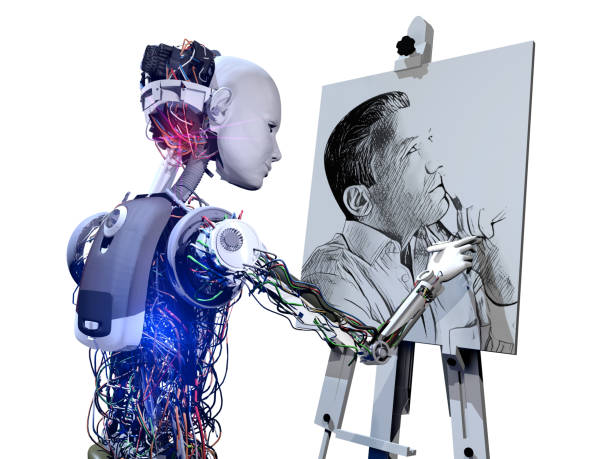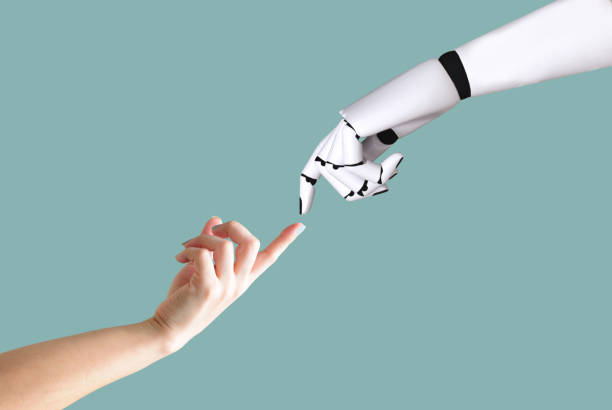The future of business is rapidly evolving, and artificial intelligence is at the forefront of this transformation. From automating tedious tasks to enhancing decision-making processes, AI is revolutionizing the way companies operate and compete in the marketplace. As technology continues to advance, it’s becoming clear that AI will play a crucial role in shaping the future of business. But what exactly does this future look like? In this article, we explore the ways AI is already transforming the business landscape and how it will shape the way companies work in the years to come.
Artificial intelligence (AI) has been a buzzword in the tech industry for years, but its impact on the business world is only just starting to be realized. From automating mundane tasks to providing insights into complex data, AI has the potential to revolutionize the way companies operate. As more businesses adopt AI technology, it’s becoming increasingly clear that this innovative tool will play a crucial role in shaping the future of the business world.
Pros of Artificial Intelligence (AI):
1. Increased efficiency and productivity: AI can automate tasks and processes, reducing the time and effort required to complete them. For example, AI algorithms can analyze large amounts of data in real time, making it possible to identify patterns and trends that would be difficult for a human to detect. This can lead to increased productivity and improved outcomes in areas such as marketing, finance, and customer service.
2. Improved decision-making: AI can provide businesses with insights and predictions based on large amounts of data, helping to make more informed decisions. For example, AI algorithms can analyze historical data and predict future trends, enabling companies to make strategic decisions that can lead to growth and profitability. AI can also help identify areas for improvement and provide recommendations for action, leading to more effective decision-making.
3. Enhanced customer experiences: AI can be used to provide personalized experiences and improve customer service through chatbots and virtual assistants. These tools can provide quick and accurate responses to customer inquiries, improving customer satisfaction and loyalty. Additionally, AI can be used to personalize recommendations and advertising, leading to a better customer experience.
4. Cost savings: AI can help reduce costs associated with labor and operations, freeing up resources for other investments. For example, AI algorithms can automate tasks that would otherwise require human labor, reducing labor costs and freeing up employees to focus on more complex tasks. Additionally, AI can help optimize processes, reducing operational costs and improving efficiency.
5. New job opportunities: The integration of AI into the business world is creating new job opportunities in areas such as data science and AI development. As more businesses adopt AI, there will be an increased demand for individuals with the skills and expertise to design, develop, and maintain AI systems.
Cons of Artificial Intelligence (AI):
1. Job displacement: AI has the potential to automate many jobs, leading to job loss and unemployment. While some jobs may be replaced by AI, it is also possible that new jobs will be created as a result of the integration of AI into the workplace. However, the transition period can be difficult, and individuals must be provided with the necessary training and support to adapt to the changing job market.
2. Ethical concerns: AI raises ethical questions around the use of data, privacy, and the potential for AI systems to make decisions that harm individuals or society. For example, AI algorithms can perpetuate existing biases in data and decision-making, leading to unfair outcomes. Additionally, the use of AI raises concerns about data privacy and the potential for AI systems to be used for malicious purposes.
3. Bias in AI systems: AI systems can perpetuate existing biases in data and decision-making, leading to unfair outcomes. For example, AI algorithms trained on biased data can make decisions that discriminate against certain groups of people. AI systems must be designed and developed in a way that minimizes bias and ensures ethical decision-making.
4. Dependence on technology: As AI becomes increasingly integrated into society, it raises concerns about our dependence on technology and the potential for it to malfunction or be used maliciously. Additionally, the increasing use of AI raises concerns about the loss of human skills and knowledge as tasks are automated.
5. High costs of implementation and maintenance: Implementing AI systems can be expensive, and ongoing maintenance and updates can add to the costs. Additionally, there may be costs associated with retraining employees and adapting processes to the new technology. It is important for companies to carefully consider the costs and benefits of AI implementation before making a decision.
The rise of artificial intelligence (AI) is rapidly changing the business world, offering new opportunities for companies to automate tasks, gain insights, and improve decision-making. AI technologies, such as machine learning, natural language processing, and computer vision, are being integrated into various business processes, from marketing and customer service to supply chain management and finance. The increasing adoption of AI is expected to bring numerous benefits to businesses, including increased efficiency, better decision-making, and enhanced customer experiences.
However, the integration of AI into the business world is not without challenges. Companies must ensure the ethical use of AI and address issues such as data privacy and cybersecurity. Additionally, the integration of AI technologies into the workplace may also result in job displacement and the need for employees to develop new skills to remain competitive in the job market.
Despite these challenges, it’s clear that AI will play a significant role in shaping the future of business. As technology continues to advance and become more accessible, we can expect to see even more innovative applications of AI in the business sector, driving growth, efficiency, and competitiveness.
As AI continues to evolve and shape the business landscape, it’s clear that the future of business is one where intelligent machines and human collaboration go hand in hand, creating a brighter and more efficient future for all.



